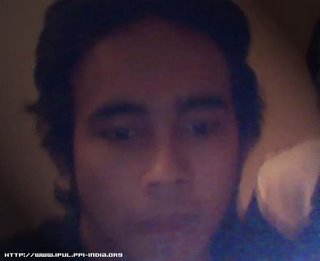Letter from Banda Aceh
By Laurence Ronan
THIS CITY of 400,000 is in shambles, a third of it completely wiped off the earth, another third under water and mud. Imagine if a wave took out Dorchester, South Boston, Back Bay, and the South End, leaving only a few sticks that were trees and no buildings, just foundations. Well over 100,000 people died here and along the nearby coast.
At the University Hospital all 300 patients and most of the staff drowned or were buried in the mud when the tsunami came. The hospital lost everything -- people, equipment, and buildings. They are still pulling bodies out of the mud.
The hospital director lost his wife and children but showed up the next day to dig out his hospital. Heroic.
We're taking the sickest patients on board our hospital ship Mercy. One of our newest patients is a little boy who was found floating on a board by fisherman two days after the tsunami. He was sent first to a refugee camp, where an uncle found him and told him that his mother and father were dead.
The boy has developed a serious case of ''mud pneumonia" from all the water he swallowed and is now on a respirator fighting for his life.
He is a favorite of the ship's medical team because he represents the struggles and courage of so many of the people here hit by the tsunami. Every person I meet has a similar story. To put this in perspective, our medical team visited a small school in the nearby town of Lamnos yesterday where only 20 of the 120 kids are left.
If I could dream, I'd fix the hospital's pediatric building, truly one of the saddest places I've encountered. It smells of urine, incense, mud, and human excrement. It's dirty and filled with flies and mosquitoes. There are no toys for the children.
It, too, went under the giant wave and the mud that came next. Nearly all of its patients were lost in the tsunami. A few survivors are here, huddled in cribs or cots in corners throughout the building with their parents or siblings camped beside them. Many of the kids are suffering from ''mud pneumonia," having been overwhelmed by the tsunami; they swallowed and aspirated seawater and mud. These children are slowly dying, daily growing thinner and breathing more heavily.
One child sits outside with the cats and dogs, his 12-year-old sister beside him. They lost their parents and four brothers in the flood. Terribly devoted to one another, they share one plate of food between them and make sure each carefully has his or her proper share.
Most of the parents are in shock. Many live in the displaced persons camps. All have lost someone and hope for their return. The great horror of the tsunami is not knowing what happened to a loved one.
Stressed, a mother delivers prematurely, a 30-week-old preemie, 4 pounds. We likely would save this child in Boston; here, she dies slowly, quietly, in front of our eyes.
The children are listless and won't play. They don't cry. And they don't respond to our offers of beanie babies.
Our psychiatrist says the kids and their parents are depressed and suffer from post-traumatic stress syndrome. We had the children do crayon drawings -- unbelievable what they remember: the massive wave, lifeless bodies.
I had brought my camera but really can't bear to photograph them because what is in front of me is so awesome, sad, and overwhelming. Indeed, at times I can't even muster my professional skills in the face of this.
Our nurses staff the hospital during the day to give the on-site nurses -- local and international -- a break. The Belgian nurse volunteers are real heroes, but they, too, look and act exhausted and defeated; they've been here as volunteers for weeks now, working without a break.
When we go back to Boston we'll begin to think how we can help to rebuild the medical center. We'll start with one small wing of the hospital for TB and pulmonary patients because rebuilding the pulmonary disease ward is a doable project with huge consequences for people's immediate and long-term health. And the Indonesian medical leadership gave this to us as their priority. They'll need an X-ray machine, TB equipment, beds, air conditioners, and a laboratory.
Most of all they'll need the aid the world promised them back in January before the spotlight of attention turned away.
(*) Dr. Laurence Ronan is aboard the hospital ship USNS Mercy off Banda Aceh with a 42-person medical team from the Massachusetts General Hospital organized by Project Hope.
Courtesy: Boston News

1 Comments:
wow, sad story... hard to imagen
Post a Comment
<< Home